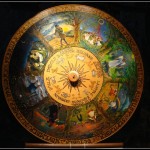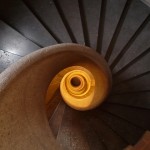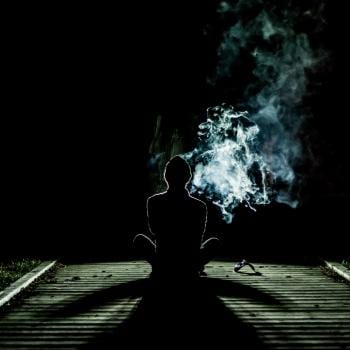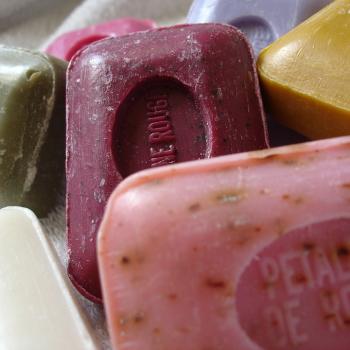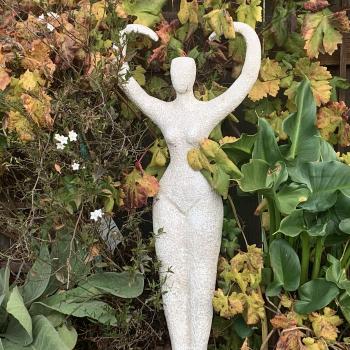Our central focus at this time of year is working with our Ancestors. “Ancestors” has several meanings for us – Our actual relatives, with whom we share DNA, that have passed through the veil and into history. Our Beloved Dead, those we’ve known personally that have preceded us in shuffling off their mortal coils. And our Mighty Dead, those of the Craft that have influenced us, taught us, still teach us and work with us from another place. These powers combined represent all our Ancestors; those of blood and bone, of breath and spirit, of lineage and cause.
If you are new to the idea of Ancestor work or Ancestor veneration, it can seem a bit daunting at first. Where do you start? Who are your ancestors? What does veneration mean to you or them? We’ve developed our practices over the years. They are typically pretty simple and can work with almost any magical tradition.
Honoring Our Ancestors
Gwion: My beloved grandmother, Lillian, died in 2003. I was with her almost to the very end. In our final conversations, she asked to be remembered. She loved lavender. I have lavender around me always as oil or the plant itself or incense. She also wanted a simple honouring at family gatherings or special dinners, a toast to “absent friends”. That’s a promise and practice I’ve kept ever since. I’ve expanded that practice to include other family members, friends, mentors, teachers, and witches that have helped shape my life and understanding of the world.
Phoenix: I have recent ancestors, sure, we all do, but I don’t really have a relationship with them. The grandparents that have passed on were people that I didn’t know very well, folks that I wasn’t close to. I put their pictures on my Ancestor altar, to honor them, but there isn’t a bond there.
The bond I feel is actually with those ancestors that I never knew, those that died tens, hundred, or thousands of years ago. As I started to learn about my ancestry, I started to learn more about the practices of the Celts, Irish, and Norse people whose DNA I still carry. I am so proud of these bloodlines.
So although their names might not be known, I strive to learn about what their lives might have looked like, what they may have eaten, how they would have dressed, where they lived, and so on. In learning about where I come from, I honor those that came before me.
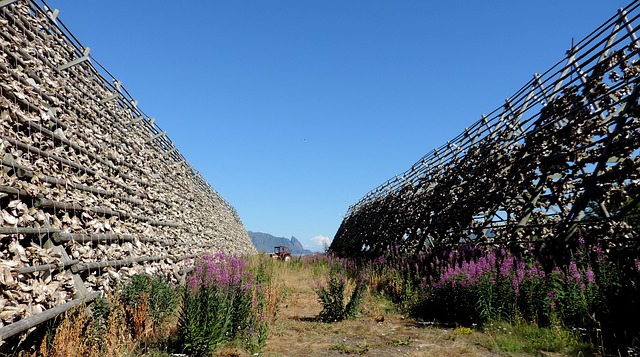
Talking with Our Ancestors
Gwion: My step-dad ( I never referred to him as that while he was alive and only do here for clarification purposes, to me he was just dad) was a glorious soul. His name was Arthur, but went by Art to most people that knew him. I find that his name was “art” to be endlessly perfect. He taught me how to play chess, he instilled in me his love of music, and bought me my first guitar. We sang together, we fished together, we talked of cabbages and kings together, and he gave me such good advice. He died when I was 22, he was just 49. Death, however, hasn’t stopped our conversations. We talk, or rather I often feel him behind me and begin listening. I ask him questions, pose them to the air about me, and just listen. Sometimes the answers come right away, other times I’ve waited for years when all of a sudden I hear his voice or remember something he said and the answer is there. It’s an honest to goodness dialogue too. Sometimes he asks me questions, wants to know what’s going on with me. We’ve had our share of intense conversations too; ones that are difficult. The space between us now lends itself to listening and appreciating rather than defending and deflecting. I cherish these conversations and I believe that he does as well.
Phoenix: My grandfather Ronald died when I was about three. I was the only grandchild that he got to meet on this plane and apparently all the jerk things he did to his children melted away with me, where he became softer. I’ve heard a lot of stories about him and I feel like I remember him. Even though the connection is fuzzy I have started dialogue with him many times. I’ve asked his advice and had him show up for me year after year at Samhain. From what I’ve heard, he used to drive down Haight – Ashbury during the late 60s and yell out the window of his car, “Cut your hair hippies!”. I’m sure he would (and does) find me odd, but the information and advice he has provided me over the years has been deep and profound.
Facing our Collective Challenges
Gwion: I’m lucky in the sense that I can trace my family lineage back many, many generations. Being from England helps. Our little island is well known for keeping all sorts of records, mundane and otherwise. For the vast sweep of history, my family have been toilers and tailors, mill workers and land workers. There’s a strain of travelers and entertainers. There are the gaolers and the jailed. As far as I can tell, I am not the direct descendant of King Harold or Charles Dickens.
I am proud and tickled pink at some of the characters my family has produced over the centuries and I wonder about those that were involved in colonialism and empire-building.There is no known family member that single-handedly started imperialism or thought that it would be a good idea to export slaves. But surely, my family members worked in the foundries that made the munitions that fueled an empire and built ships that carried people away from their homeland. A practice I’m developing involves learning as much as I can about the life and times of my ancestors of blood and asking them questions about what they might see as the result of their time on the planet. This is difficult, raw and experimental magic for me, but it seems like it is serving some of the work I do (or want to do) in the world today.
Phoenix: One strain of my bloodline has been in America since 1776. In my studies this is the line I’ve been the least interested in, but the one that I’ve learned the most about. American records are so much easier to get a hold of as an American than European ones. I don’t have good feelings about these ancestors, I don’t have concrete evidence, of what they were like or what they were involved with but I just know it wasn’t all good.. I believe that we can heal the past and part of my magic is to heal the trauma my ancestors inflicted on other people, including each other.
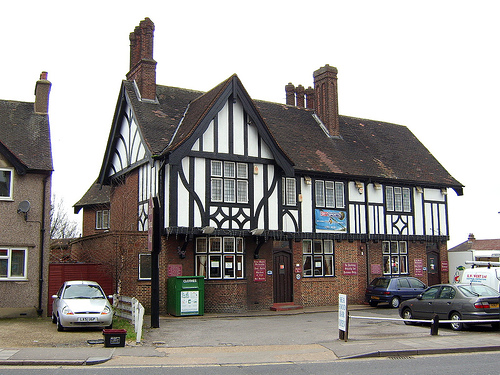
Sharing our Collective Joys
Gwion: My ancestors of blood have been as much rowdy as gentile, artistic as bawdy. If we were all present in one place at one time, the stories we could tell would be epic. That’s true of my magical ancestors too, those from the Craft that have gone before me. I can only hope to do them justice by having a few stories of my own to tell when I’m an ancestor.
In our house and in our circles, we do share these tales. We laugh with our ancestors. We sing their favorite songs, eat foods they loved, mimic the singular way they did invocations. We keep them alive by calling their names and telling their stories and honoring their memories. There’s a line from a pagan song that goes “I lay you down and promise to remember you.” and that’s what we do – We remember them.
Phoenix: For me, it doesn’t matter what your feelings might be about your lineage, your parents, your grandparents. The bottom line is that it took other people to make you a people. Honoring that is a step in honoring your life. What our ancestors experienced left marks on our DNA, we literally walk with them still singing in our blood and bones, that is some amazing shit! Feel the power and the joy in that. Yes, there can be trauma there, but there can also be happiness, joy, positivity. This is the time of the year to be in that.
There are many ways to honour our ancestors – Setting up altars, recalling their names, looking at pictures, commenting on their still-active Facebook pages. For us, it’s part of what makes us witches and what makes the work we do in the world have meaning.
To keep on what we’re doing, You can like our Facebook page at The Witches Next Door.

